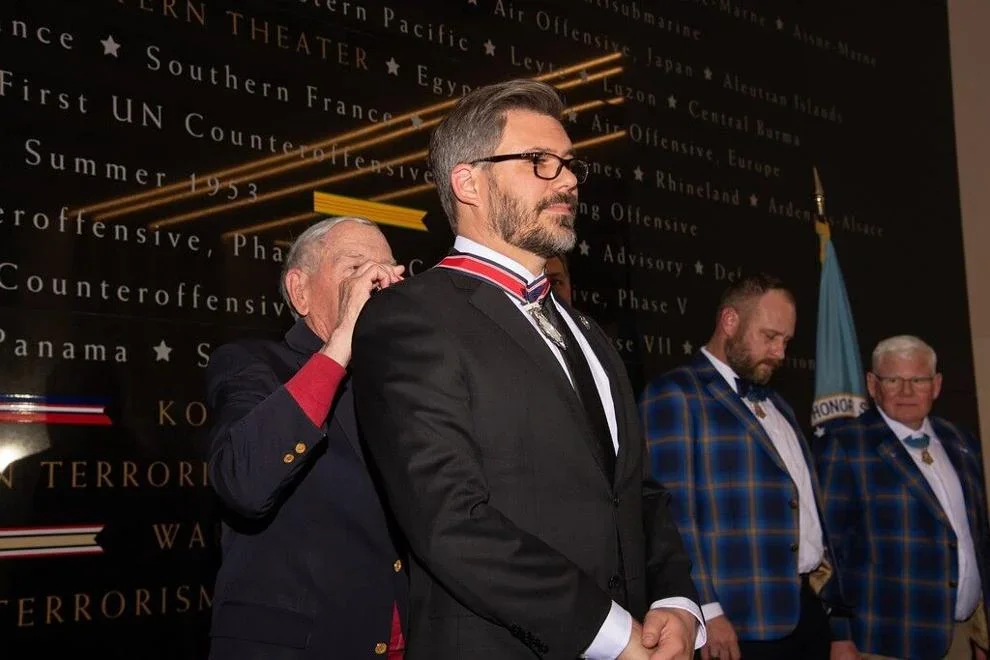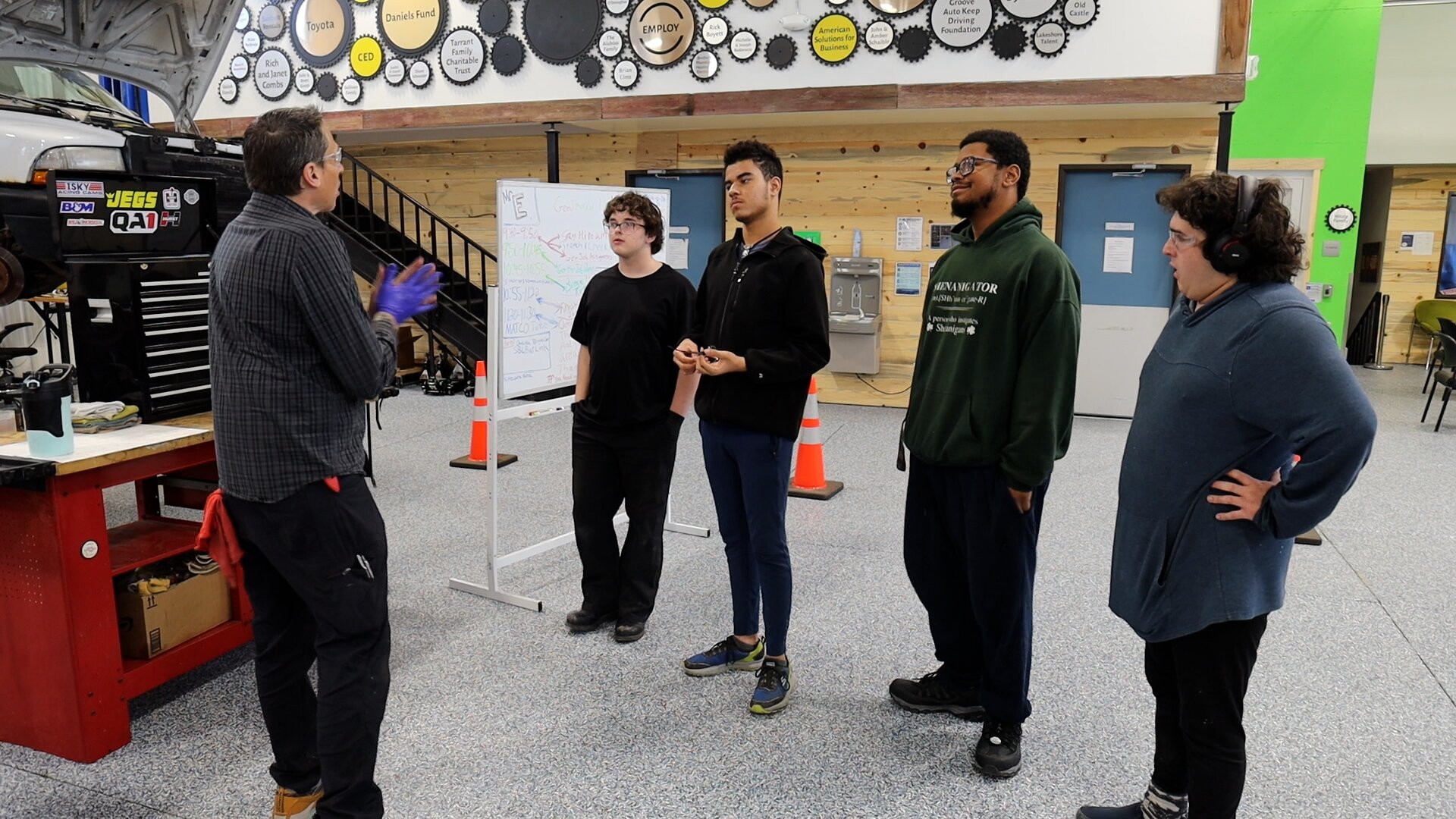People with autism often have difficulty finding employment. This nonprofit links them to trade jobs
DENVER — Henry Moss was diagnosed with Autism in elementary school after his teachers noticed that to focus, he needed to pace around the room.
His experience of being yelled at for disrupting class made Moss shy away from college and academic settings, leading him to freeze up on the job search.
“I’m not much of a talker, and I would turtle-up during interviews,” said Moss, who is now 23.
Nationwide, adults with an autism diagnosis have an unemployment rate of around 40%, according to a 2021 study published in the National Library of Medicine. Some private estimates go even higher, suggesting 85% of adults with autism are unemployed. At the same time, there are 388,000 vacant skilled trades-related jobs, according to Leapros, a private staffing company that tracks the industry.
Tackling both problems at once by training people on the spectrum to work in the trades–electricians, plumbers, carpenters, and concrete masons–propels the mission of Teaching the Autism Community Trades (TACT), a nonprofit that led Moss to his job as a welder.
“There is just something primal about how I felt when I saw someone taking a hammer to a piece of heated metal,” said Moss, who had been interested in Blacksmithing and sword-making as a kid.
“Something about that just felt right to me, and this is what I want to do, and that is to work with metal,” he said.
Danny Combs's son Dylan, 15, was diagnosed with autism at age 2. This diagnosis led Danny Combs to found TACT in 2016 along with the Colorado Neurodivergent Chamber of Commerce. To date, the organization partners with 60 businesses to place its graduates into jobs and offers training in automotive, carpentry and computer design. Dylan Combs is currently looking for a summer job this year.
“The autism community has value,” said Combs, who received a Citizen Honor Award from the Congressional Medal of Honor Society in March for his work with the autism community.

Danny Combs traveled to Washington D.C. to receive his medal from the Congressional Medal of Honor Society.
Photo courtesy of the Congressional Medal of Honor Society
“I think that's been one thing that has historically gone unnoticed when you talk about a group of people that is 90% unemployed. Autism is not a bad thing. It shouldn't be looked at as some kind of curse or anything, the way people have framed it as a deficit,” he said.
People with autism tend to enjoy clearly defined rules and dislike ambiguity, which makes their neurodivergence a good fit in manufacturing and trade jobs, according to research from Mentra: Neurodiversity Employment Network, an employment organization for neurodivergent people.
For example, trade-skilled jobs require attention to detail while many neurotypical people would find an environment like that stressful, according to the report. More than that, overly social jobs tend to distract people with autism.
“[The autism community] is a giant talent pool that [trade employers] didn’t know existed because no one is talking about it,” said Combs. “[Autistic people] are incredibly talented able-bodied individuals that can do amazing things.”
Cameron Foley, 22, works as the shipping manager with Moss at Weifield Group. He started his trade education with TACT in 2019 but took a break when the pandemic hit before returning in 2022.
“[At TACT] I could actively see in my head what to do and manipulate with my hands, either taking something apart or wiring a chord up a wall,” Foley said. “That is what helped me understand what I was doing better than any kind of drawing or instructor could.”
Communication is one of the most significant factors in finding employment, said Foley, who has family members who are also on the spectrum. In past job interviews, he said, he could tell his answers came across as “muddled” to employers and that his tone could be off. All this led to him having trouble answering questions and feeling as though he didn’t have a fair shot as a candidate.
“I would struggle in regular interviews if it was one question after another and wasn’t able to piece together the answers efficiently,” said Foley, who said through TACT and at his job he no longer feels like he has to fight to be understood and treated like an adult.
“I didn’t feel like I had much opportunity to think of what my answers should be and then put that into words of how I am feeling,” he said.
Outside of work, however, Foley said sometimes when people learn he’s on the spectrum they assume he doesn’t know how to take care of, or speak, for himself. Worse, there’s an assumption that he can’t understand complex issues or what they’re saying, which leads to people speaking to him as if he were a child.
“I think the assumption that because someone is on the spectrum, they need to be seen as a less educated person can affect how they understand and feel how the world sees them,” said Foley.
In his spare time, Moss enjoys using Blender Studio, a program for creating video game characters through 3D printing.
“One thing I love about having autism is that it's easy for me to come up with designs and different shapes in my head. I can create blueprints inside of my mind,” said Moss.
Foley said being an electrician fascinated him. He started out at Weifield Group doing assembly work at their warehouse and later worked his way up to become the building's Shipping Manager.
“The main thing is, no matter which side you’re on, if you are talking to somebody on the spectrum or you’re on the spectrum yourself, don’t be afraid to ask questions,” Foley said. “The best way to clear up any communication is to ask if the person understands you properly if the message is getting across. When we don’t ask questions, that is when things get confusing. That’s when those stereotypes begin to form.”
James Selecky, founder and construction executive for Weifield Group, said his company partners with TACT because its mission is to give back to the community.
“One of our key elements at Weifield is to give everyone an opportunity," Selecky said. “We show individuals a career path within the organization and show them how they can go in different verticles, but they have to put the time and energy into it too.”
Selecky said many factors make it hard to fill the gaps in trade skill jobs. For one, he said there isn’t enough workforce entering trade jobs this career choice as the baby boomers retire. He also said it starts with the public school education curriculum. Selecky said his company helps build schools, but almost every school his team helps build does not hold industrial arts classes.
Selecky said Weifield Group works with the Cherry Creek School District and offers paid part-time summer opportunities for students to come to work for Weifield to get first-hand experience in the construction field.
Weifield additionally works to help find employment for people who were previously incarcerated and disabled folks, including wheelchair-bound people. The company also offers paid summer internships to Cherry Creek School District students who are handicapped, such as being wheelchair-bound.
“Someone gave us opportunities, so we feel it is our mission to give other people opportunities instead of just fitting into a box,” said Selecky.
Selecky said he and Weifeild Group staff help Foley and Moss feel welcomed at work by treating all their employees no differently than anyone else in the support structure.
“Henry and Cameron have a voice. We ask for their opinions and validate them like all our other employees,” said Selecky.
Speaking to other CEOs and employers, Selecky said daily he encourages other businesses to keep an open mind when employing people on the spectrum or with different life challenges.
Daniel Zabelin, 19, has been a student at TACT since 2017. He has known he wanted to work in the trades since he became childhood. Zabelin has autism. He became fascinated by how his washer machine at home works. He is also intensely interested in working on cars, specifically his 2000 Dodge Durango SLT Plus.
“I can notice fine details,” said Zabelin. He does not have a timeline for when he will be done with his training, but he has participated in many camps and workshops at TACT.
Zabelin said he feels fellowship and community when learning at TACT.
“I think it's very important to be in a place where people are supported and accepted because of what they do and want to achieve,” said Zabelin. “I love exploring under cars and learning how to use separate tools and different types of tools. It’s straightforward and enjoyable.”
Zablein’s classmate and friend, 20-year-old A.J. Hall, is also autistic. Hall has been a student at TACT with since 2023. He wants to have a career as a car mechanic in auto mechanics.
“I love doing oil changes, I love [fixing and working] on brakes, anything that gets my hands dirty with a car,” said Hall.
Hall said he has been working on cars with his dad and brother since he was 13. He dreams of opening his shop one day.

A.J. Hall (second from right) and Daniel Zabelin (right) listen to their TACT instructor in Denver.
Photo: Lindsey Ford, Rocky Mountain PBS
“What I enjoy about [working on cars] is that it brings me joy, stress relief, and makes me happier than I normally am,” said Hall.
Combs dreams of having a TACT office in every state. This year, TACT has partnered with Fedcap, a New York-based organization that promotes workforce education and helps people with disabilities find employment.
The first two TACT offices will open in Texas and New York later this year.
“The amazing thing is TACT is going to outlive me,” Combs said. “It's pretty amazing to think that something home-grown in Colorado is going to hopefully have an impact on the entire autism community throughout the country.”
Lindsey Ford is a multimedia journalist at Rocky Mountain PBS. Lindseyford@rmpbs.org



